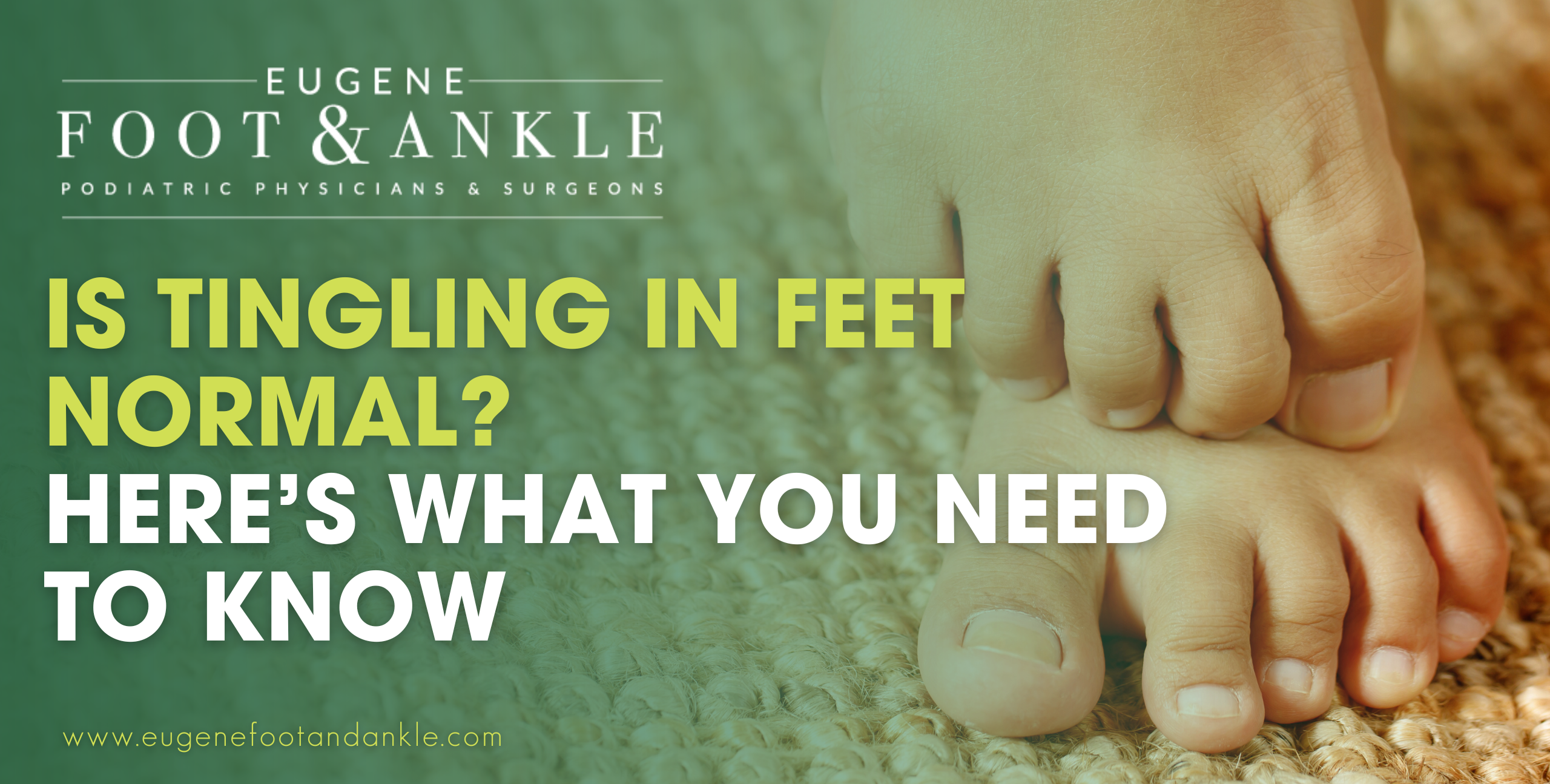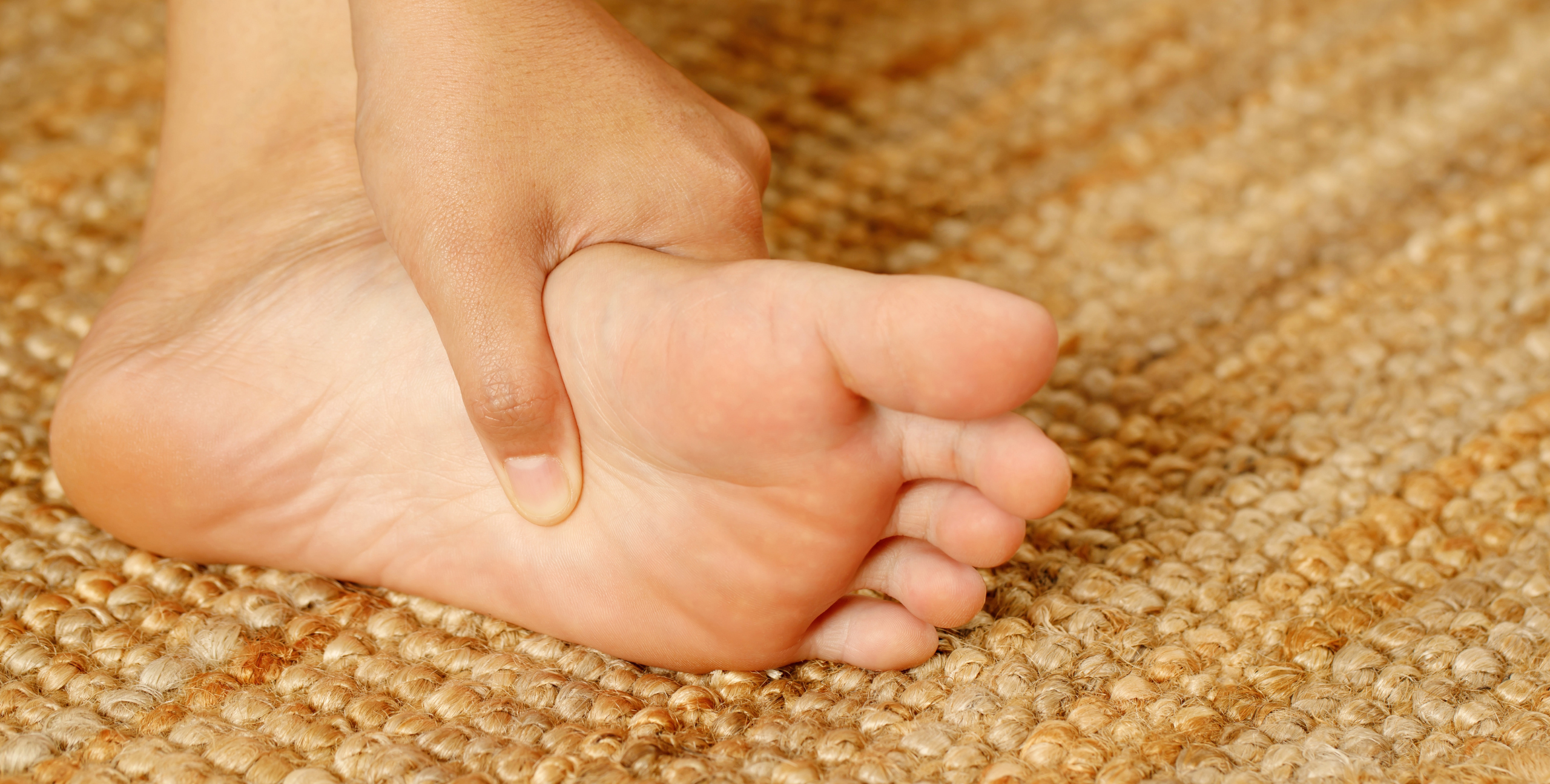Is Tingling in Feet Normal? Here’s What You Need to Know
Most of us have experienced a pins-and-needles sensation in our feet at some point, maybe after sitting in a weird position for too long or wearing shoes that are too tight for you. When that tingling lasts, happens frequently, or is accompanied by other symptoms, however, it could be a sign of something more serious.
Let’s explore what might be causing tingling in your feet, when to be concerned, and how to find the right treatment.

What is Tingling in the Feet?
Tingling in feet, also known as paresthesia, is often described as a prickling, crawling, or sensation that almost feels ‘electric.’ It may come and go, or it could stick around and be a constant in your life. Many also experience numbness or burning in the same area. While occasional tingling might not be a cause for alarm, persistent or worsening symptoms should never be ignored.
Common Causes
Tingling in feet may be temporary and harmless, or it could require medical attention. There are a variety of reasons why you might be feeling this sensation:
- Poor Circulation- You may feel tingling if blood isn’t flowing properly to your feet, especially during or after physical activity. Peripheral artery disease (PAD) is a condition that restricts blood flow and can cause tingling, cold feet, and color changes in the skin.
- Nerve Compression or Injury- Pressure on nerves in the lower back or legs can cause tingling in the feet. Conditions like sciatica, herniated discs, or tarsal tunnel syndrome (a foot-specific nerve entrapment) can all lead to these sensations. This factor could be the culprit if you’ve recently injured your back or foot.
- Diabetic Neuropathy- A frequent cause of tingling in feet is diabetic neuropathy. Over time, nerves can be damaged by high blood sugar levels, especially in the extremities like the feet. This nerve damage often begins with tingling or numbness and can lead to pain, weakness, or balance problems if left untreated.
- Vitamin Deficiencies and Alcohol Use- Low levels of vitamins like B12 or B1 can affect nerve function. Alcohol can also damage nerves over time, especially with chronic use, leading to tingling or burning sensations in the feet.
- Other Possible Causes- Certain medications (like chemotherapy or some antibiotics), autoimmune diseases (such as lupus or rheumatoid arthritis), and infections (like shingles or Lyme disease) can also cause tingling in feet. In rare cases, it may be related to nerve conditions like multiple sclerosis.
When Should You Worry about Tingling in Feet?
Not every case of tingling is serious, but some are. Here’s when to pay closer attention:
- The tingling is persistent or happens frequently
- It’s accompanied by pain, burning, or numbness
- You notice weakness, poor coordination, or balance issues
- You’ve been diagnosed with diabetes or vascular issues
- The sensation interferes with walking or daily activities

How is Tingling in the Feet Diagnosed and Treated?
Getting to the root of tingling in feet starts with an evaluation, where your doctor may ask about your symptoms, medical history, and any medications you’re taking. Podiatrists are trained to recognize patterns in nerve-related foot issues and often catch things that can be missed in a general exam.
At your appointment, your podiatrist will start by asking detailed questions:
- When did the tingling start?
- Is it constant or does it come and go?
- Are you experiencing any pain, numbness, or weakness?
- Do you have any history of diabetes, back problems, or injury?
They may perform physical exams, circulatory assessments, muscle strength and gait evaluations, or other tests they may deem necessary.
Treatment entirely depends on the underlying cause, so your podiatrist will walk you through the next steps.
Can Tingling in Feet be Prevented?
While not every case is preventable, there are steps you can take to protect your feet and your nerves.
- Managing conditions like diabetes and high blood pressure
- Eat a balanced diet that incorporates vitamin B
- Stay active to improve circulation, but avoid repetitive strain
- Wear well-fitting, supportive shoes
- Don’t ignore foot injuries or infections
The earlier you address tingling in feet, the better your chances of preventing long-term nerve damage.
Don’t Ignore What Your Feet Are Telling You
Tingling in your feet might seem like a minor annoyance, but it can be your body’s way of signaling something deeper. Whether it’s a circulation issue, nerve damage, or something else entirely, it’s worth getting checked out.
If you’re dealing with tingling in your feet at Eugene Foot and Ankle is here to help. We specialize in getting to the root of foot and ankle symptoms so you can stay active, pain-free, and confident on your feet.
Contact Us
Eugene
Hours:
Monday............ 8:00am - 5:00pm
Tuesday............ 8:00am - 5:00pm
Wednesday............ 8:00am - 5:00pm
Thursday............ 8:00am - 5:00pm
Friday............ 8:00am - 4:00pm (Only available on phones)
Closed for lunch from 12pm - 1pm and closed until 1:30pm on Tuesdays
© Copyright 2025 Eugene Foot and Ankle. All Rights Reserved. | Privacy Policy.
